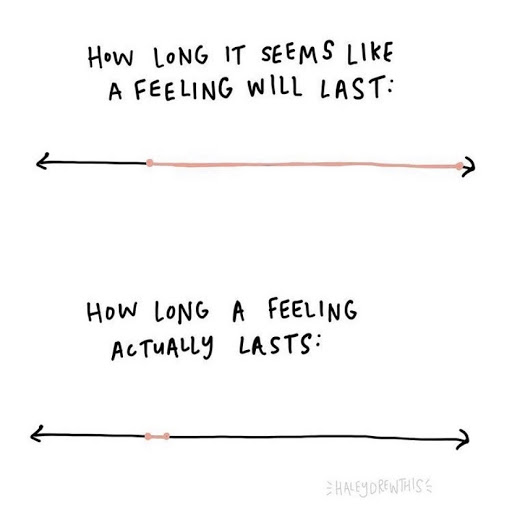Mental Health During the Pandemic
Hello! This is Dr. Zhang, Medical Director of Haven Elite Urgent Care. I hope this article on ‘Mental Health During the Pandemic’ finds you well, and if not, I hope it proves to be a helpful resource for you and your family.
These are undoubtedly difficult times. Over the past few months, we have faced a global pandemic, quarantine, economic uncertainty, and more recently, social turmoil. These events can impact your mental health in many ways, as I’m sure you’ve felt at one time or another. This article will help you recognize the signs of stress, anxiety, and depression, explain how your mental health during the pandemic physically impacts your body, and teaches you how to improve your mental health going forward.
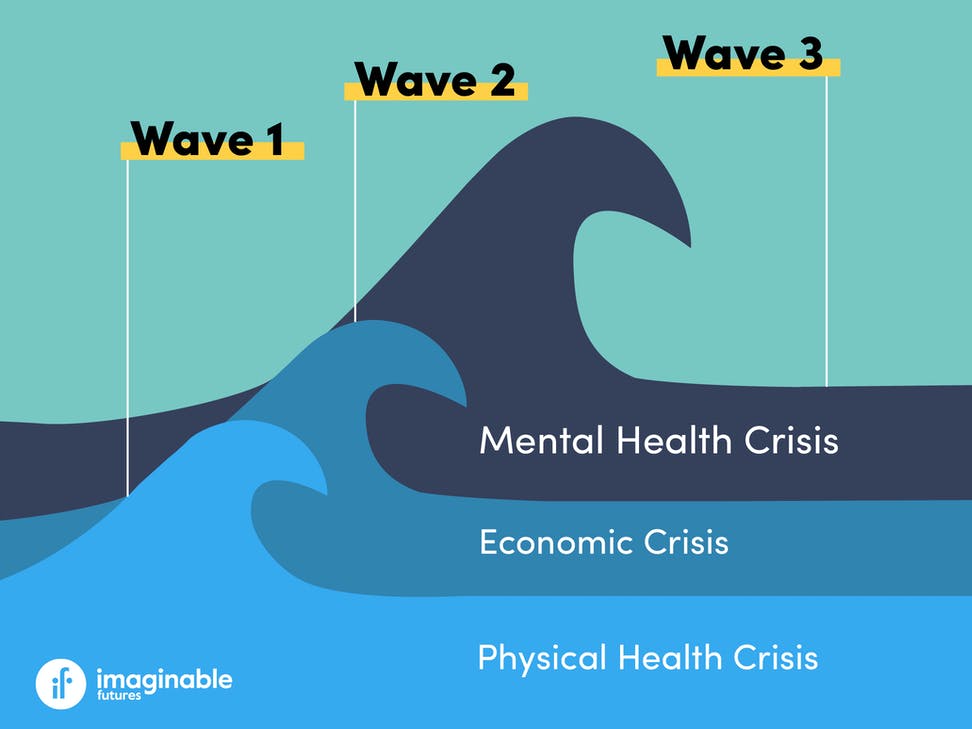
Recognizing Stress, Anxiety, and Depression
A pandemic is a traumatic event, and it is completely natural to be experiencing strong, difficult emotions. The coronavirus outbreak creates opportunities for stress to arise in countless ways, whether that be fear for you and your loved ones’ health, concern about your job, or the toll of being isolated. These emotions, along with feelings of frustration, horror, or grief that might arise from the current political unrest, can frequently trigger stress, anxiety, and depression.
If you feel this way, you are not alone. What you’re feeling is natural and shared by almost everyone during these times!
It’s important to be aware of these emotions and recognize the symptoms so that you can confront them and find positive ways to improve your well-being.
SYMPTOMS OF STRESS/ANXIETY
Stress tends to be short term and in response to an external cause, like a difficult situation at work, horrifying news stories, or the uncertainty of reopening after quarantine. On the other hand, anxiety is internal and can appear even in non-threatening situations. If you’re interested in learning more about the difference between stress and anxiety, this attachment article is a great resource.
However, while stress and anxiety are different, they share many of the same symptoms:
- Feeling apprehensive or overwhelmed
- Being tense or jumpy
- Easily agitated, frustrated, and moody
- Feeling bad about yourself (low self-esteem), lonely, worthless, and depressed
- Avoiding others
- Inability to focus
- Changes in appetite — either not eating or eating too much
- Procrastinating and avoiding responsibilities
- Increased use of alcohol, drugs, or cigarettes
To learn more about anxiety disorders, the National Alliance on Mental Illness covers this topic more in-depth.
SYMPTOMS OF DEPRESSION
With everything going on in today’s society, it’s common for people to find themselves ruminating, feeling hopeless and helpless, and, ultimately, depressed. Although we’re slowly opening up, most of us have been in isolation for a long time. We are missing our friends and family, sitting alone with our thoughts, and are perhaps lacking the usual emotional support we usually had. These factors, along with many others that are listed in this National Alliance on Mental Illness article here, can all lead to depression.
Below are some of the signs of depression:
- Constantly feeling sad, empty, or anxious
- Feeling helpless, worthless, or guilty, and ruminating on your losses or failures
- Becoming easily agitated, frustrated, and moody
- Losing interest in activities you usually enjoy, such as hobbies, games, and eating
- Feeling less energetic
- Having trouble concentrating
- Changes in the way you sleep — either having trouble falling asleep or sleeping much longer than usual
- Excessive crying
- Having suicidal thoughts
If you recognize any of these symptoms, there’s no need to feel ashamed or guilty. Stress, anxiety, and depression are natural and extremely common, especially in current times. Remember to check in with yourself at least once a day! Touch base with your body and mind by asking yourself what’s bothering you and what’s making you feel happy. This way, you can bring your feelings to your attention and process them with clarity. Whenever I have a quick moment of peace to myself — whether it’s during a break between the flow of patients or at home after eating dinner — I will run through the checklist below:
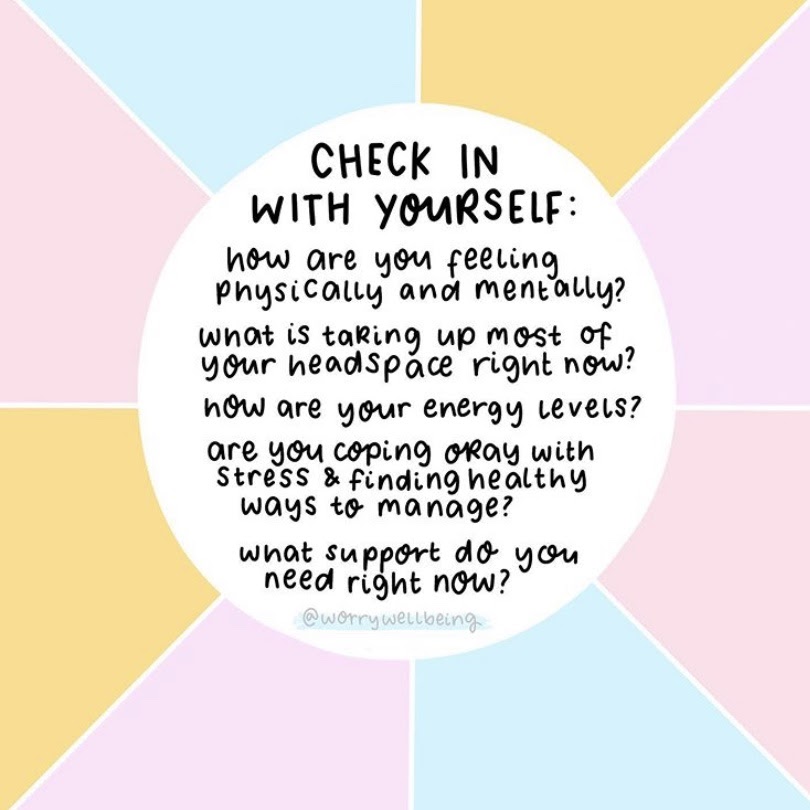
How Your Mental Health Affects Your Body
One reason why taking care of your mind is so important is because it links directly to your body. Stress and depression manifest in real, physical symptoms. I see lots of these symptoms in the clinic, more now than ever. People are coming in with palpitations, sleeplessness, tension headaches, chest tightness, and shortness of breath. Kids, in particular, will come in with stomach pain or irregularity in their bowels. The graphic below is a demonstration of the particular effects of stress/anxiety and depression on the body.
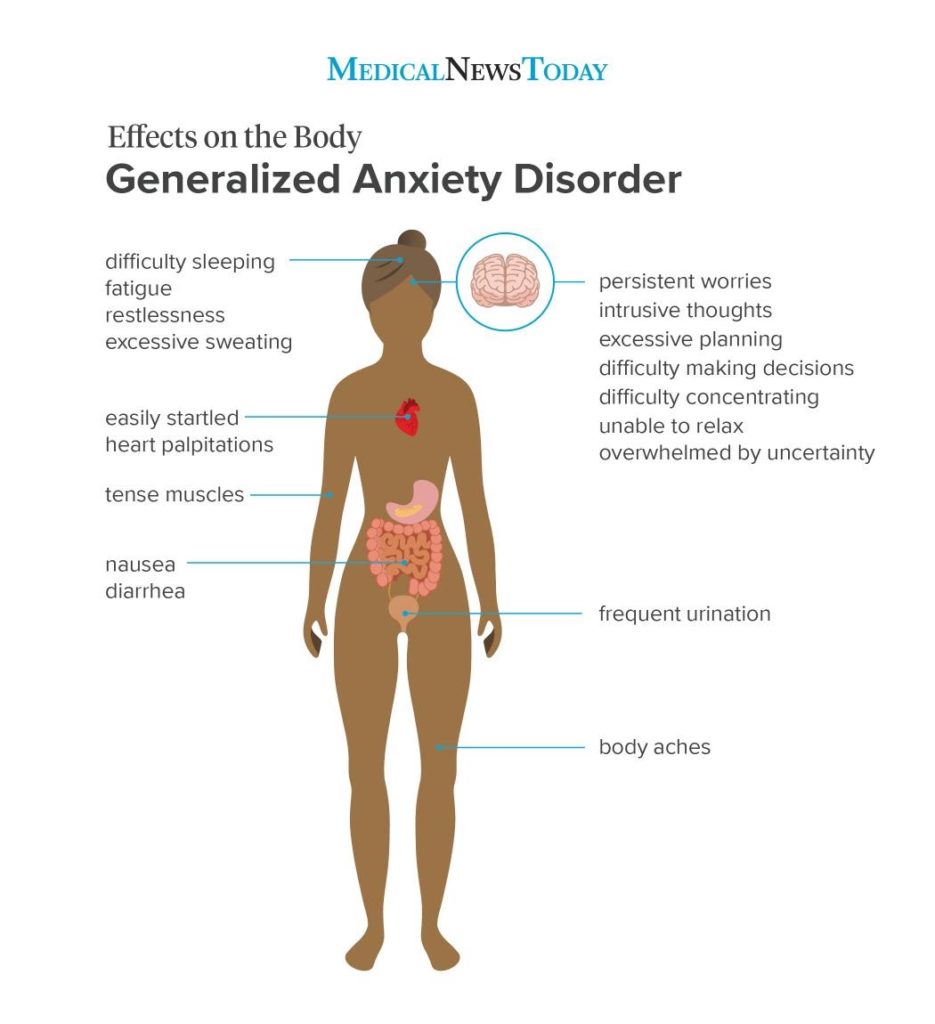
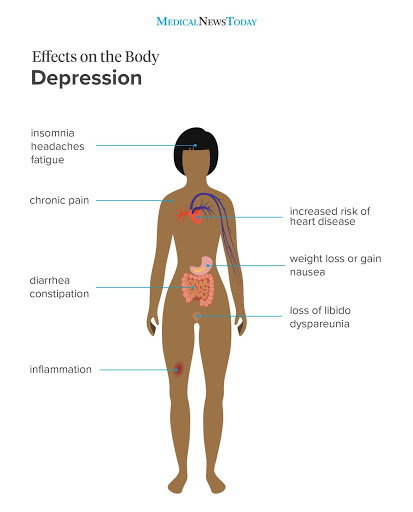
How to Take Care of Your Mental Health
Taking care of your emotional and mental health during a crisis will help you think clearly and will benefit your long-term healing. Here is a list of the things I recommend incorporating in your daily life to look after yourself:
- Take breaks from your exposure to the news, including social media. Hearing about the pandemic and the protests repeatedly can be upsetting. You don’t need to see every video and read every article. Stay informed, but don’t overwhelm yourself.
- Take care of your body. Try to eat healthy, well-balanced meals and avoid alcohol, tobacco, and other drugs.
- Make time to unwind. Try to do some other activities you enjoy. For example, take out a pen and a journal. Now, write about your thoughts, feelings, or even just make a list of things that make you happy or grateful.

Connect with others and Meditate
- Connect with others. Share your concerns and feelings with a friend or a family member. Build a strong support system and have people to go to when you want to just have fun and relax.
- Meditation: can give you a sense of calm, peace, and self-awareness that can benefit both your emotional well-being and your overall health. It can help you learn to focus on the present and reduce negative emotions. For more information about different types of meditation, click here.
These two are my personal favorites to take a breather and unwind. The first video is just a basic, relaxing breathing exercise and the second is a 10-Minute Guided Meditation.
Exercise and Get a Good Night’s Sleep
- Exercise: Increases blood circulation to the brain, which helps control motivation, mood, and response to stress. It also releases endorphins, the body’s feel-good hormones. My personal favorite way to exercise is going hiking with my daughters (while wearing face masks, of course). This is what I look forward to most on my days off!
- Get a good night’s sleep. A stressed mind tends to have trouble falling asleep at night. Try developing a routine to train your brain that it’s bedtime. Before bed, shut off the distressing news, take a warm bath or shower, read a book, listen to soothing music, or meditate. Eliminate any bright lights, including your phone! The blue light from your phone disrupts your body’s natural sleep cycle.
The CDC website also has a great web-page with more resources for coping during an emergency, including links to professional helplines and counseling services.
Let’s Review:
Why is Mental Health Important During These Times,
and How Can You Improve it?
Feeling stressed, anxious, and depressed is natural in the midst of a disease outbreak and social unrest. It’s important to acknowledge your feelings, recognize any emotional or physical symptoms, and get the help you deserve. I hope these tips for improving your mental health are useful to you and that they provide a healthy way for you to cope with any negative emotions you may be feeling at this time.
If you have any of these symptoms, you can visit us at Haven Elite Urgent Care. Here, we can assess whether or not your symptoms are stress-related, and if they are, we can refer you to the appropriate mental health professional. My fellow Haven Elite Urgent Care staff members and I are here to listen to you, care for you, and remind you that you are not alone.
Remember, while icky feelings like stress and sadness often feel as though they’ll last a lifetime, they will not. Stay safe and stay strong. THIS TOO SHALL PASS!
– Dr. Zhang
